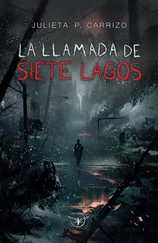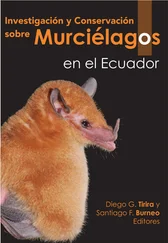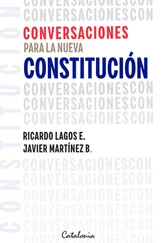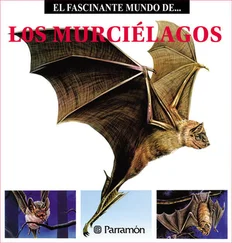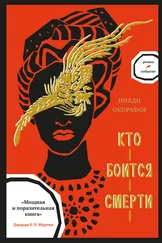Ннеди Окорафор - Lagos Noir
Здесь есть возможность читать онлайн «Ннеди Окорафор - Lagos Noir» весь текст электронной книги совершенно бесплатно (целиком полную версию без сокращений). В некоторых случаях можно слушать аудио, скачать через торрент в формате fb2 и присутствует краткое содержание. Город: New York, Год выпуска: 2018, ISBN: 2018, Издательство: Akashic Books, Жанр: Детектив, на английском языке. Описание произведения, (предисловие) а так же отзывы посетителей доступны на портале библиотеки ЛибКат.
- Название:Lagos Noir
- Автор:
- Издательство:Akashic Books
- Жанр:
- Год:2018
- Город:New York
- ISBN:978-1-61775-523-1
- Рейтинг книги:4 / 5. Голосов: 1
-
Избранное:Добавить в избранное
- Отзывы:
-
Ваша оценка:
- 80
- 1
- 2
- 3
- 4
- 5
Lagos Noir: краткое содержание, описание и аннотация
Предлагаем к чтению аннотацию, описание, краткое содержание или предисловие (зависит от того, что написал сам автор книги «Lagos Noir»). Если вы не нашли необходимую информацию о книге — напишите в комментариях, мы постараемся отыскать её.
Lagos Noir — читать онлайн бесплатно полную книгу (весь текст) целиком
Ниже представлен текст книги, разбитый по страницам. Система сохранения места последней прочитанной страницы, позволяет с удобством читать онлайн бесплатно книгу «Lagos Noir», без необходимости каждый раз заново искать на чём Вы остановились. Поставьте закладку, и сможете в любой момент перейти на страницу, на которой закончили чтение.
Интервал:
Закладка:
I’m only telling you this so you will understand what it did to me. Yes, I have come to her story. It is a short one, but you need to remember how this episode had affected me — I couldn’t sing in church anymore without remembering slimy hands against a flaccid cock. So I left.
Yes, I’ve gotten to it.
It was past eleven p.m. another night — slightly over a year after my... you know, the episode. I was only just starting to relax again in night buses.
You ask me why I didn’t stop taking buses? Ah, what could I do? Nothing. There are no options for a poor man. Poor man has to work; poor man cannot afford to live on the island; poor man closes really late. I had to suffer through the journeys, my butt clenched so hard on the thin pads that did nothing to cushion against the metal frames. Peering at every passenger for a sign of duplicity.
Anyway, I was in a bus heading toward Yaba from Obalende. We’d gotten to that stretch of road that ramps off the Third Mainland Bridge. The only street where lights repel the police and attract hooligans? The one people speed past because of all the horror stories? Well, we didn’t go fast enough for this story. The robbers stopped us with the tires that littered the road, so close to our destination.
It was the night I almost pissed my pants when I saw a gun for the second time. And this woman was sitting beside me, and she trembled and I trembled. We all trembled. It must have been a slow night for them to be stopping a danfo. The road yawned empty and ominous before and behind us.
They knocked the bus conductor unconscious because all his bus stop bravado had been reduced to a murmuring mess of Yoruba gibberish. One of them had the driver lying flat under his foot. The other three asked us to bring out our phones, bags, and money. I was seated in the row directly behind the conductor and it didn’t take many whimpers and growls before it was my turn. I handed over my cheap Nokia, familiar with the routine.
And then the one with the long fingernail on his pinkie saw her. He had a knife, and I remember thinking it was quite fancy with its decorated handle of gleaming stones. But the curve and glint of the knife laid any illusions of fancy to waste. He pointed the knife at her, then jerked it to point outside. She obeyed. I had to clamber out of my window seat so she could pass. I admit that I immediately plastered myself against the bus to try to render myself invisible.
Then, with the knife resting on her collarbone, I saw him rip her blouse open. It was a loose floral shirt that was cut high. But she had those breasts that would announce themselves even in a nun’s habit. I am indicted by the memory of watching them jiggle over the bumps in the road that night.
The ripping sound was loud. She stepped back, recoiling. The man raised the heavy handle of the knife and hit her head with a dull thump. She whimpered and stood still. His gang paused to look at him, clearly surprised at this twist. One chuckled and called him an omo ale — bastard. Pulling breasts out of her lacy navy-blue bra, he lowered his head and took a nipple into his mouth.
I remember his shirt, you see. It was one of those green My Money Grows Like Grass tees. I remember his neck; it was strained at that angle — I could see his spine pressing out of his sweaty skin. I remember the silence.
Oh, it was silent. I couldn’t stop looking from between my fingers. No, don’t look at me that way. I couldn’t. Was it the horror that had me frozen? I don’t know. Maybe I wanted to see if she would handle it differently than I had? But then, she had a bigger audience.
It was silent except for his suckling and little moans. Everyone stayed quiet as he moved from left to right, and right to left. The blood trickled down her face from the skin his knife had split below her hairline.
It is because I couldn’t stop looking that I saw when she left her body behind. Her eyes went blank, my friend. There was nothing left in her dark irises. And that was when I turned away. Another woman in the bus began to cry loudly. It was as if they shared the same spirit and she was the one who could weep.
Nobody cried for me.
I remember the sound. It still sits at the back of my neck. It was one lady, but I swear she sounded like a whole village of mourning women. It came out of her and the robbers snapped back to action.
They took our money and our bags and our voices.
After they sped off on their bikes, the other women gathered around the victim. They tucked her breasts away and gave her their scarves to cover the shreds of her blouse, but she did not say a word. I have never heard a silence so scary.
And then a man laughed. I don’t remember which. He laughed and slapped his thigh and shook his head.
The laughter seemed to provoke something in her. She brushed the women aside and went to him. She put her hands underneath her breasts, cupped them, and pushed toward him.
“Go on. Finish it. Kill me.” And the laughter did not stop. Yes, it was me.
I couldn’t stop laughing: at the idea that covering her breasts would somehow cloak the memory; at the idea that after tonight, she wouldn’t wake up every night feeling the slobbery slipperiness of a stranger’s tongue under her shirt. I laughed at the foolishness.
The driver recovered and the conductor was shaken awake. They asked everyone to get back in, but she didn’t. We left her behind, pushing her breasts toward the bus as she became smaller, and grainier, and unidentifiable through the dusty rear window of the bus.
There she is now. And this is her story that you wanted to know.
The Walking Stick
by E.C. Osondu
Agege
They found the body in the early afternoon, just when the children from the infant classes were coming back from school. They let the toddlers out early so that they could have their lunches before they became too hungry. If he had not died, he would have been in his favorite bar in the camp, holding a bottle of his favorite lager beer — 33 Export — by the scruff of the neck, and calling the returning schoolchildren by the special nicknames he had for each one of them as they ran home.
“Ma wife, ah dis no good-o you not even wan greet ya husband today. Ha, my wife no good-o,” he would say to one of the little girls returning from school.
To another a boy with a big belly he would call out: “Big belly boy! See how your belly big, and you neva start to drink beer yet. When you start to drink beer your belly will be bigger than this drum.” Then he would point at the big red drum filled with a block of ice and beer bottles that shivered as they rested on their freezing bed.
Usually after his third bottle of 33 Export he would start dancing. By this time, the older children would be on their way back from school. He had no cute exchange with these ones, and he dared not give them cute nicknames. As he danced, they mocked him — they called him names. These were tough kids. Life in the Refugee Resettlement Center off the Agric bus stop in Agege was rough, and even at this age they had seen quite a few of the cruel ways that life could slash and cut people up, children included.
“Drunkard man, see how he is dancing like his legs are broken,” one of the schoolboys said one afternoon, and they all began to laugh. They had already learned how to make their wretched lives more bearable by making others feel even more miserable.
“Tell him to buy us 7UP,” one of them urged their leader.
“Drunkard man, c’mon, buy us 7UP,” the leader of the group demanded. He was not begging; his voice was hard.
The man held out his half-empty bottle of 33 Export. They shook their heads. They were hungry, and beer would only make them feel even more famished. They wanted 7UP. They could imagine its cold, filtered sweetness flowing down their throats into their bellies. Was it his offer of beer that made them angry? Seemingly from nowhere, a certain cruelty crept into them, and they picked up stones and began throwing them violently at the man. He stopped dancing and yelled when a rock came close to hitting him. He clutched the beer to his chest, cradling it as if saving the bottle was more important. The woman who owned the drinking shack ran out with a broom and chased after the children until they fled. “Useless children!” she yelled after them.
Читать дальшеИнтервал:
Закладка:
Похожие книги на «Lagos Noir»
Представляем Вашему вниманию похожие книги на «Lagos Noir» списком для выбора. Мы отобрали схожую по названию и смыслу литературу в надежде предоставить читателям больше вариантов отыскать новые, интересные, ещё непрочитанные произведения.
Обсуждение, отзывы о книге «Lagos Noir» и просто собственные мнения читателей. Оставьте ваши комментарии, напишите, что Вы думаете о произведении, его смысле или главных героях. Укажите что конкретно понравилось, а что нет, и почему Вы так считаете.
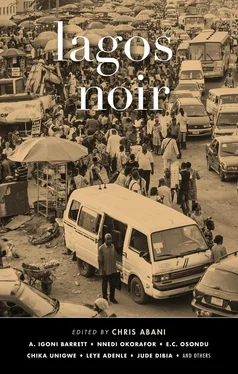



![Ннеди Окорафор - Бинти [litres]](/books/399229/nnedi-okorafor-binti-litres-thumb.webp)
![Ннеди Окорафор - Кто боится смерти [litres]](/books/401080/nnedi-okorafor-kto-boitsya-smerti-litres-thumb.webp)
